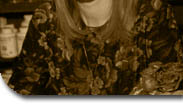(61)
Tissue mass located
subcutaneously in the right inguinal area
measuring
2.5 X 1 cm.
All other organs
examined grossly were unremarkable.
Original:
Mass - Previously
described on 12/9/72 and located subcutaneously
in the right inguinal
area now measures 2.5 X 2.0 X 1.0
cm and may be described
as smooth-surfaced, purplish-
yellowish in color,
non-glistening, firm, multi-nodular,
non-adherent to the
underlying muscles and containing a
firm yellowish-whitish
tissue. (Submitted in toto
together with a portion
of the skin and underlying muscle
with remainder of
tissue).
Heart - Left ventricle
has undergone a moderate amount of dili-
tation. Wall, left
ventricle is thin.
Liver - Prominent
lobular architecture.
Lung - Right, post-caval
lobe-consolidation.
Kidney - Markedly
enlarged, yellow and rough-surfaced, bilaterally.
Dilitation of the
pelvis.
Adrenal - Covered
with tiny yellow spots measuring 1 mm
in diameter,
bilaterally.
Testes - Marked atrophy,
bilaterally.
All other organs
examined were grossly normal and unremarkable.
Tiss. Trimming -
Nodules discovered immediately posterior
(2.0 cm) to
the pyloric portion
of the stomach within the adipose
tissue. Nodules may
be described as firm, yellowish
brownish in color.
Non-glistening measuring 1.2 X
1.0 mm to 4.0 X 4.0
mm.
E27MM
Submission:
Lung - Moderate diffuse
hyperemia.
Eye - Opaque cornea,
bilaterally.
All other organs
examined grossly were unremarkable
Original:
Lungs - All lobes
exhibit moderate diffuse and uniform hyperemia.
(62)
Kidney - Moderate
autolysis.
Eye - The entire
cornea is opaque, bilaterally.
Spleen - Moderately
autolyzed.
Stomach - Numerous
1-2 mm. hemorrhagic ulcerations are located
on
the glandular mucosa.
Entire small and large intestines
are moderately autolyzed.
Brain & Pituitary
- Moderately autolyzed.
All other organs
examined were grossly normal and unremarkable.
A1HM
Submission:
All organs examined
were grossly unremarkable.
Original:
Testes - Markedly
atrophy, bilaterally
Lung, Rt - Middle
lobe exhibits a 1 X 1 cm consolidation
on the
posterior portion.
Liver - All lobes
appear olive green otherwise unremarkable.
All other organs
examined were grossly normal and unremarkable.
L27HM:
Submission:
Testes - Right, slightly
enlarged; left, mild atrophy.
All other organs
examined grossly were unremarkable.
Original:
Testes - lt./appears
markedly atrophy
rt./appears to be
distended with yellowish white
substance
Seminal V- Appears
markedly atrophy bilaterally.
Intestinal - Large,
markedly distended with "gas".
All other organs
examined were grossly normal and unremarkable.
P.M. Testes - Also,
small black areas are noted within along
with
the yellowish areas.
Black areas measuring 1.0 X 1.0 to
4.0 X 4.0 mm in diameter.
(63)
J30HM
Submission:
Lung - Moderate consolidation
of all right lobes.
Testis - Moderate
atrophy
All other organs
examined grossly were unremarkable.
Original:
Pituitary - Markedly
enlarged; slightly hyperemic.
Heart - Left Ventricle
has undergone dilitation walls thin.
Lung - Right, anterior,
medial and post-caval lobe have
undergone consolidation.
Testes - Marked atrophy,
bilaterally.
Seminal Vesicle -
Marked atrophy, bilaterally.
All other organs
examined were grossly normal and unremarkable.
Dr. Stejskal told
us that the other pathologist (Dr. Joseph
Smith) who
made microscopic
evaluations of the slides, came from a
hospital
background (human
pathology) and therefore his descriptions
and
terminology were
a little bit different than one would
expect from a
veterinary pathologist.
MICROSCOPIC PATHOLOGY
We have assisted
in our review of the Microscopic Pathology
of Study
E-77/78 by Charles
H. Frith, D.V.M., Ph.D, Director, Pathology
Services,
NCTR. Dr. Frith arrived
on 6/22/77 and spent 3 days with the FDA
team.
He examined slides
for a representative number of animals,
the selection
of which was made
jointly by Dr. Frith and the other members
of the FDA
team. A Searle Pathologist
was not present during Dr. Frith's review
of
the slides. However,
Dr. Frith did meet with Dr. Rudolf Stejskal,
SEarle
Pathologist, at the
conclusion of this review and discussed
some of his
findings with him.
The first phase of
Dr. Frith's review consisted of the examination
of the
tissues of 25 of
the surviving control females and 11 of
the non-surviving
control females for
a total of 36 animals. All of the slides
were
examined for each
animal and the results were compared to
the microscopic
reports provided
by Searle Laboratories. The inconsistencies
(findings
that differed from
those reported by Searle) are listed below:


